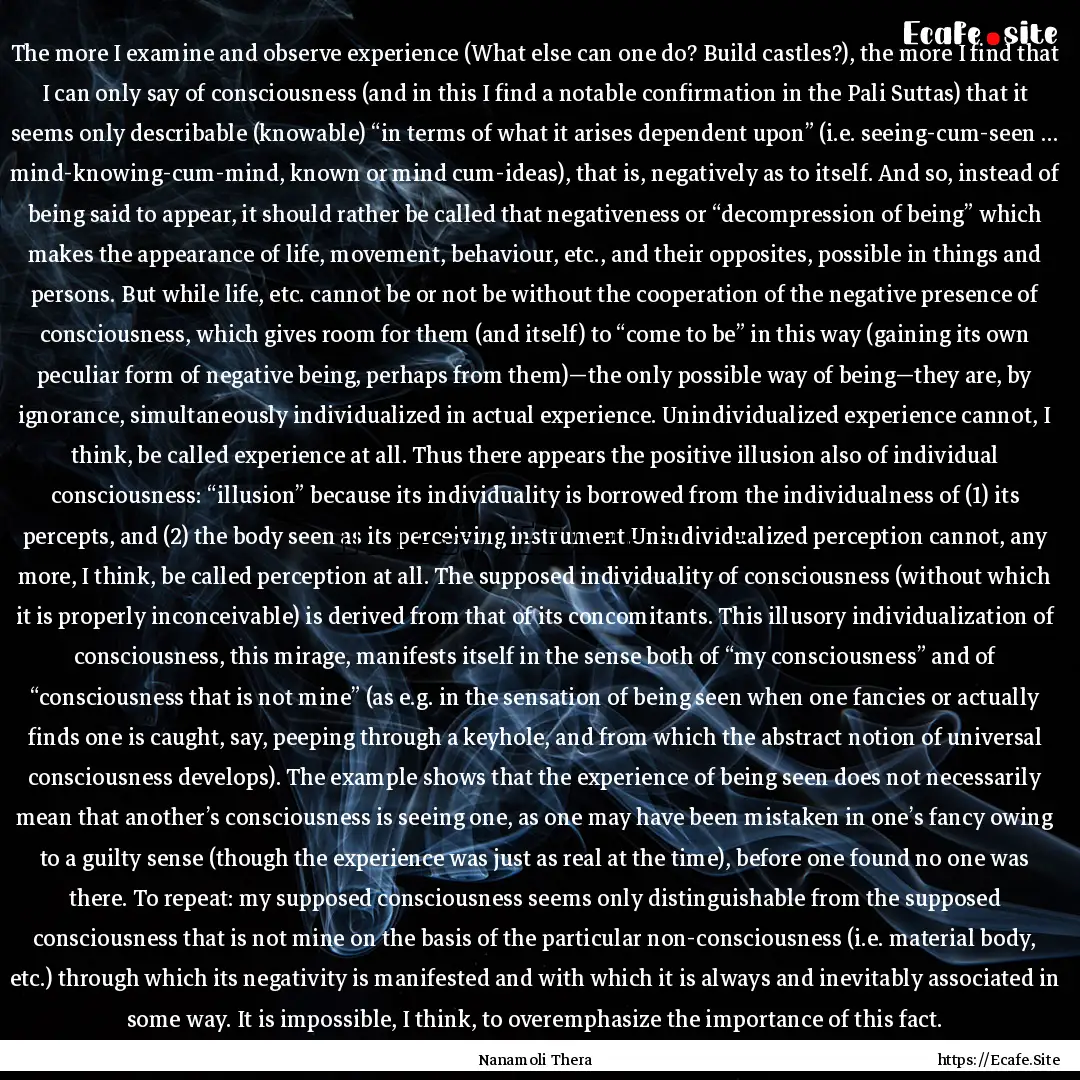
Report, if you have a problem with this page“ The more I examine and observe experience (What else can one do? Build castles?), the more I find that I can only say of consciousness (and in this I find a notable confirmation in the Pali Suttas) that it seems only describable (knowable) “in terms of what it arises dependent upon” (i.e. seeing-cum-seen … mind-knowing-cum-mind, known or mind cum-ideas), that is, negatively as to itself. And so, instead of being said to appear, it should rather be called that negativeness or “decompression of being” which makes the appearance of life, movement, behaviour, etc., and their opposites, possible in things and persons. But while life, etc. cannot be or not be without the cooperation of the negative presence of consciousness, which gives room for them (and itself) to “come to be” in this way (gaining its own peculiar form of negative being, perhaps from them)—the only possible way of being—they are, by ignorance, simultaneously individualized in actual experience. Unindividualized experience cannot, I think, be called experience at all. Thus there appears the positive illusion also of individual consciousness: “illusion” because its individuality is borrowed from the individualness of (1) its percepts, and (2) the body seen as its perceiving instrument.Unindividualized perception cannot, any more, I think, be called perception at all. The supposed individuality of consciousness (without which it is properly inconceivable) is derived from that of its concomitants. This illusory individualization of consciousness, this mirage, manifests itself in the sense both of “my consciousness” and of “consciousness that is not mine” (as e.g. in the sensation of being seen when one fancies or actually finds one is caught, say, peeping through a keyhole, and from which the abstract notion of universal consciousness develops). The example shows that the experience of being seen does not necessarily mean that another’s consciousness is seeing one, as one may have been mistaken in one’s fancy owing to a guilty sense (though the experience was just as real at the time), before one found no one was there. To repeat: my supposed consciousness seems only distinguishable from the supposed consciousness that is not mine on the basis of the particular non-consciousness (i.e. material body, etc.) through which its negativity is manifested and with which it is always and inevitably associated in some way. It is impossible, I think, to overemphasize the importance of this fact. ”




